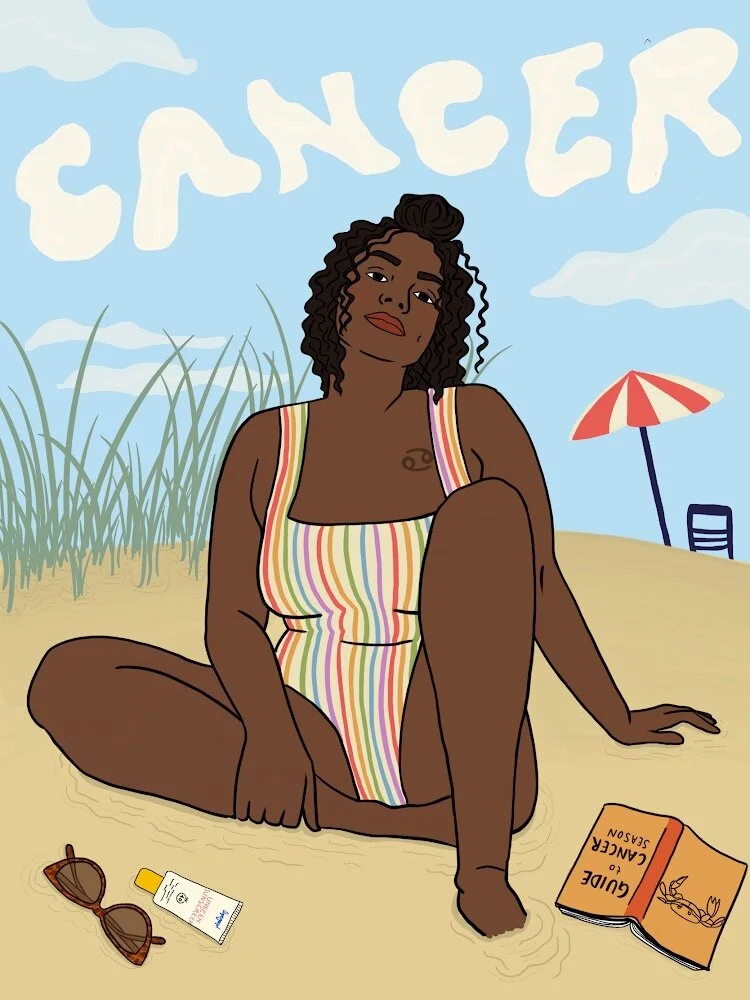I Need You So Much Closer: Platonic Intimacy and Gender
About the series: “I Need You So Much Closer”
Intimacy — what does it mean to you? Death Cab for Cutie sings about it as a yearning impossibility in their 2000s classic “Transatlanticism,” some only view it as sex, others have an immense fear of the feeling. It can mean everything and nothing or be achieved with everyone and no one but yourself; it’s a complicated concept that changes with experience, especially in such an odd circumstance as quarantine. At Camp Thirlby, we relish in this vast range and simply view intimacy as an act of closeness — with romantic partners, friends, strangers, even yourself. It can be a simultaneously rewarding and terrifying experience, and self-isolation can amplify those feelings — especially when intimacy feels so unattainable. Our Camp Counselors have decided to reflect on the ways in which they find, or fail to find, this closeness, either inside or outside of the pandemic. Ranging from finding new ways of closeness during a time of crisis or rethinking past notions of intimacy, these odes to needing the affinity of people act as a reminder to its importance in a time when everything feels so distant.
One of my favorite films ever is When Harry Met Sally, but its central question — can men and women be friends? — always bugged me. Of course they can, I thought to myself. The notion that men and women can’t be friends because sex ostensibly gets in the way of things felt silly and heteronormative.
Upon multiple watches since my first viewing, I’ve realized that Harry and Sally do in fact build a strong, intimate friendship before they eventually end up together. So technically, the answer to that initial question is yes, men and women can be friends. But it’s also worth recognizing that the foundation of any great relationship is friendship and that a platonic co-ed bond is something to be as valued as a romantic co-ed bond.
Too often, we tend to think of relationships through a binary lens. From childhood through adolescence, we are conditioned to seek out people of the same gender as friends and those of the opposite gender as potential suitors. If men and women become friends, those relationships are frequently questioned on the basis of attraction, especially towards the guy — either he wants to be more than friends or he’s gay. Both of these narrow-minded assumptions are precisely what makes it so tough for some to realize that men and women don’t always have to be pursuing one another for the sole purpose of romance or sex.
Conflating someone’s sexual orientation with their specific preference of companions can be especially harmful for cis straight men. Such a belief not only dismisses any possibility for men to have healthy, non-sexual relationships with women, but also creates a damaging aversion to anything that can be perceived as “gay” or “effeminate” in nature and enables men to continue to suppress their emotions for the sake of social conformity.
Equally problematic is the trending phenomenon of the “simp,” a misogynistic dog whistle disguised as a pejorative for men who are seen as too attentive and submissive to women in the hopes of winning some entitled sexual attention from them. There certainly is truth to the toxic ways in which men expect reciprocated affection from women, but classifying someone with that label invites a regressive, sinister implication that any man who supports a woman in any capacity is deemed weak and opportunistic. It’s even more backward than the “friend zone,” another popular phrase resultant of ingrained gender roles.
All of this is to say that, despite a steady rise of male-female friendships in the United States over the past few years, the lack of normalization around this issue in our cultural discourse is still worth addressing. Consider, for example, the dearth of narratives in modern television and film that focus on men and women as just friends and nothing more. There are a few exceptions from this past decade — “30 Rock,” “Parks and Recreation,” “Alone Together,” “Me and Earl and the Dying Girl” — but stories about these kinds of relationships are still relatively rare. They aren’t given nearly the same level of emotional weight and representation as more romance- and family-centric stories. In our current tumultuous social climate where attitudes around contemporary gender dynamics are constantly shifting and evolving, it’s important to examine the various factors that inhibit men and women from maintaining friendships, unlearn the old-fashioned concepts around gender and sexuality that we’ve been taught since our youth, and emphasize the qualities that make male-female friendships so necessary and special.
In my life, my relationships with women have played a huge part in helping validate my more emotional tendencies. I was fortunate enough to have the guidance and positive influence of my main role models during my upbringing — my older sister, my mom, my aunt, and my bubbie, each of whom were more or less responsible for shaping me into the person I am today. One of the most formative experiences I had as a kid was lighting and blessing the candles with the women in my family during Shabbat. It’s a custom traditionally meant for just the women to lead, but for some reason, I felt compelled to follow along with them as opposed to just watching them, which my father and grandfather usually did.
Still, even at around 10 years old, I was aware of how my gravitation to spend more quality time with girls than boys marked me as different. I struggled for a long time to reconcile the tension between the nurturing environment I grew up in with the sometimes harsh reality of standards people expected me to fit into. It was much easier to be around girls my age because they respected vulnerability, reciprocated emotionally, and gave me a space to express my genuine self without fear of being shamed. My conversations with these friends were also much more interesting and complex; we could discuss everything from pop culture to religion, career goals to social issues, family drama to relationship drama.
This contrasted greatly with my guy friends. It was much trickier to do anything or talk about anything that wasn’t tied to rigid, archetypal ideas of masculinity (e.g. sports, video games, girls). There was a strange, unspoken discomfort among my male friends around being vulnerable and open about their emotions. The pervasive stigma around men’s mental health is thankfully being addressed more than ever now, but its patriarchal grip still has repercussions that are difficult to destabilize.
As I came of age, I found it harder and harder to escape the idea that the intimate, platonic relationships I developed with girls defined my sexuality. From middle school to high school, I had trouble coming to terms with my bisexuality, seeing that I wanted to date girls just as much as I wanted to be friends with them. I was presented with the dual challenge of wanting to appear more “straight” despite my many friendships with women and not wanting to be misunderstood that I only wanted to be friends with women.
My mom, bless her heart, would ask me on occasion if I was romantically interested in the girls I was friends with. This question is where I feel a lot of confusion about male-female friendships transpire — the issue of friendship as a stepping stone to something more romantic. In some cases, male-female friendships can lead to that point, but to assume that all male-female friendships have that potential is misguided; they can simply exist on their own. Simultaneously, I understand how intergenerational divides contribute to this bewilderment, as young millennials and Gen-Zers seem naturally more comfortable with cross-gender friendships than our parents do.
It wasn’t until college when I learned to appreciate and cherish my friendships with women. Once I confronted a lot of the internalized biphobia from my adolescence, I was able to fully accept my bisexuality and through that, I discovered that my openness about it didn’t really change my friends’ perception of me (admittedly, a lot of this is due to the fact that many of my good friends are also queer). It occurred to me that as long as I lived my truth, it really didn’t matter whether or not I had more girl friends than guy friends. What matters more than anything is developing meaningful, communicative relationships with people who made me feel good about myself — regardless of gender — who challenge me intellectually, whose perspectives push me outside my comfort zone. It just so happens that a majority of those people are women.
I recognize that not many men have the privilege I had in being socialized among women and therefore might not be as inclined to cultivate friendships with them. But to the men who are either self-conscious or oblivious about the gender makeup of their social circle, I really want to stress that not only can you be friends with women, but you should be friends with women. To limit oneself from developing a relationship on the basis of gender is to disbar oneself from experiencing something that is ultimately rewarding and worthwhile.
About the Author
Sam Rosenberg (he/him) is a graduate of the University of Michigan with a degree in English and film, television, & media. He is a screenwriter and pop culture obsessive originally from and currently living in Los Angeles. He has contributed work for other publications like Alma, The Michigan Daily, The Conversationalist, and The Wrap.


